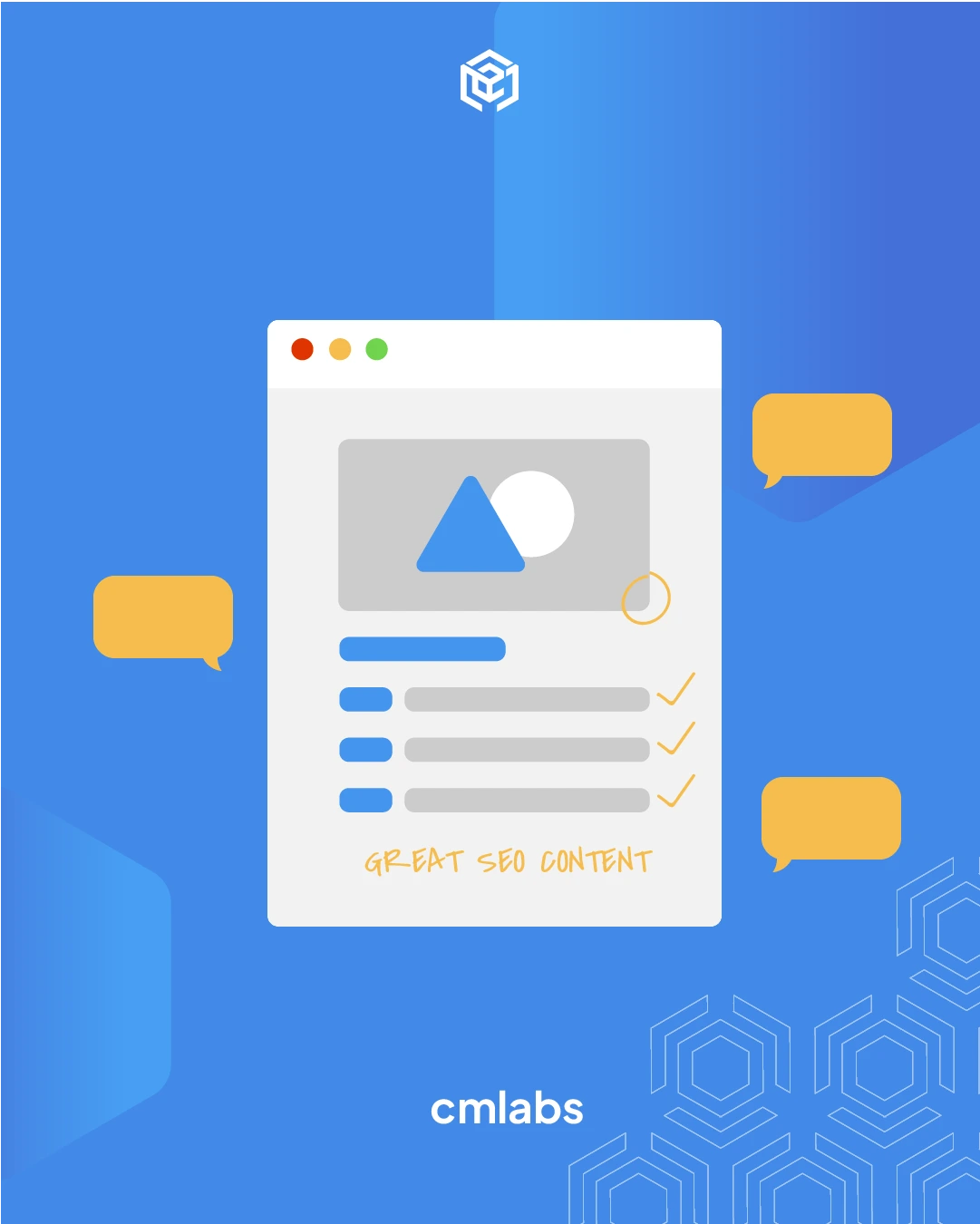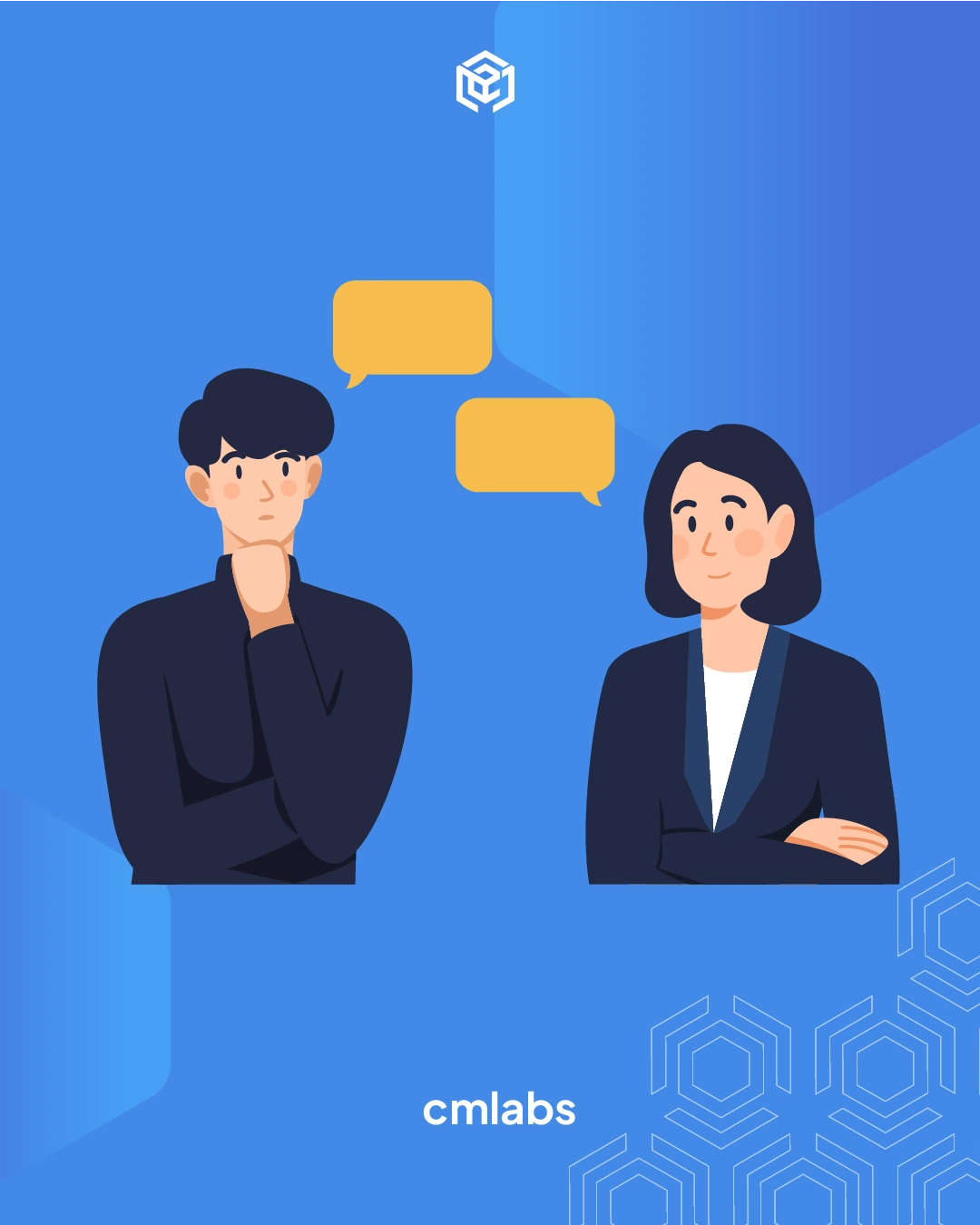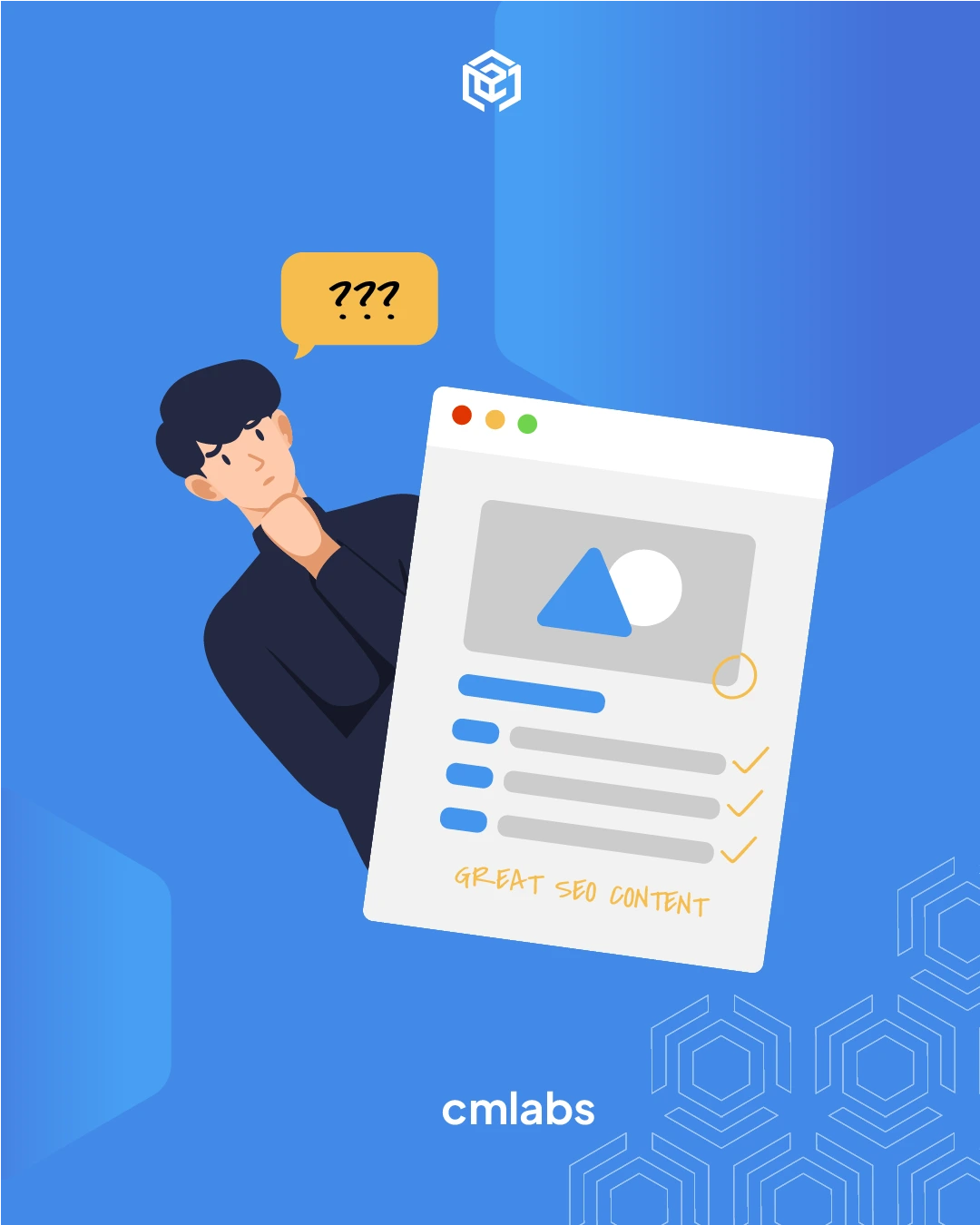We use cookies
This site uses cookies from cmlabs to deliver and enhance the quality of its services and to analyze traffic..
SEO SERVICES
Conduct in-depth technical website audits, strategically develop website projections, and increase your website authority.
ASO SERVICES
Elevate Your App’s Presence with Our Expert ASO Services – Boost Visibility and Drive Downloads!
WRITING SERVICES
We offer a variety of writing services to suit different business necessities. Reach broader audiences or lead specific industries? We've got you covered!
SEOlutions
A unified source of truth!
SEO & Digital Maternity Solution
SEO & Digital Maternity Solution: Leverage Cross-Platform Insights to Elevate Your Strategy with Expert Consultation
SEO & Digital Maternity Solution
Data Solution options:
Starting from Rp200 mio
Reinventing how a company get creative treatments
A new way to get your creative needs done. Agile team, efficient cost, and expedient way in a flexible yet scalable subscription plan!
Creative-as-a-Services
CaaS package options:
Based on Subscription
Pioneer in digital marketing software powerhouse
We’re excited to unveil our new range of Tech Solutions designed to drive your digital success. Whether you’re looking to enhance your website’s performance, streamline your tech stack, or unlock deeper insights from your data, we’ve got you covered.
Starting from Rp250 mio
Our Clients
Research and innovation center for digital transformation
Digital marketing combines technical skills and business knowledge at every stage. For marketing teams, improving budget management efficiency is crucial, as time is an invaluable resource that should be used wisely. At Sequence, we are dedicated to empowering you to optimize efficiency and strategic planning, ultimately enhancing the impact of your digital marketing efforts.
Subscription-based (IDR1,800/keyword)
Our Clients
BeyondSEO
References
SEO Tools for Webmasters
SEO Tools for Writers
SEO Tools
FIND THE SUITABLE PARTNERSHIP FOR YOUR COMPANY
Check out which cmlabs partnership program suits your company
WHITE LABEL SEO
for CorporateYour company is granted exclusive partnership rights to provide SEO services to our important clients, and we will provide a dedicated backend team to support your efforts.
AFFILIATE PROGRAM
for BizdevA new affiliate program is being introduced for skilled marketers and individuals with strong networks, offering commissions of up to 7% for generating profits independently.
DIGITAL AGENCY
for Marketing Partnerscmlabs is an essential partner for digital agencies, providing a unique selling proposition in Search Engine Optimization (SEO).
BACKLINK PARTNERSHIP
for Media / BloggerWe have a vast database of bloggers and media outlets across Indonesia, categorized by region and media type, giving our clients an edge in managing their media and SEO activities.
OFFICIAL TRAINING
We provide ongoing professional development and support to SEO professionals to ensure they are equipped to meet market demands.
JOIN AS CONTRIBUTOR
for Content WriterGreat opportunity for SEO Writers around the world. T&C applied!
ACADEMIC PARTNERSHIP
Through partnerships with universities in Indonesia, cmlabs has helped align academic curricula with industry demands.
Partnership
Sector & Industries
Tell us your SEO needs, our marketing team will help you find the best solution
As an alternative, you can schedule a conference call with our team
Schedule a Meeting?Contact
Survey
We use cookies
This site uses cookies from cmlabs to deliver and enhance the quality of its services and to analyze traffic..
Last updated: Aug 05, 2024
SEO over-optimization is when you use excessive SEO practices to achieve a high website ranking.
This condition can be caused by several factors, one of which is using too many keywords in your website articles.
Search engines strongly dislike over-optimization in SEO as it can reduce the user experience.
All things that excess never end well. Over-optimization in SEO can cause several serious problems, as search engines may consider your website fraudulent or spammy.
Search engines may also judge that the content you create is low-quality and irrelevant. Your website may suffer serious penalties, including lower rankings or even removal from the search results.
Over-optimization in SEO can occur due to several factors related to improper SEO practices. Here are examples of over-optimization in SEO:
Excessive keyword use, also known as keyword stuffing, is a common over-optimization issue. It can be detrimental, as it makes the content appear unnatural and difficult to understand, such as repeating keywords without considering the context.
Building backlinks is an SEO practice that aims to improve website rankings. However, unnatural link-building from irrelevant sources can make your website appear suspicious and untrustworthy.
Another form of over-optimization in SEO is creating low-quality content. Poor quality content negatively impacts search rankings and damages your business website's reputation.
Characteristics of low-quality content include lacking value in content for readers, poor writing structure, not providing useful information, or simply copying others' work.
Anchor text is used to build internal links within a website. It is the hyperlinked text that directs readers to another page containing a further explanation of the anchored term.
Overusing and unnatural use of anchor text can lead Google to detect your content as manipulative and irrelevant.
Another form of SEO over-optimization is having too many pages targeting similar keywords. If you create multiple articles targeting the same keyword, they will compete against each other in search results, known as keyword cannibalization.
Moreover, search engines will struggle to determine which page is of higher quality, ultimately lowering your page rankings.
Excessively linking to the homepage can mess up the website structure, resulting in uneven SEO value distribution across pages. Most importantly, a cluttered website structure makes it difficult for search engines to understand your website's content.
After understanding what is over-optimization in SEO and its negative impact, you certainly know that you should never conduct this practice.
But, what if you don't know whether or not this condition is happening on your website?
Here are some ways you can detect over-optimization:
In the early development of SEO, you could buy a domain name containing many keywords and get a good position for those keywords.
Although some SEO practitioners still believe that domain names with keywords are important, the use of keywords in domain names is now considered to be a form of over-optimization in SEO. So, this practice should be avoided.
Keyword cannibalization is caused by having the same keywords on several different pages.
It is called cannibalization because, in such a condition, web pages will compete to rank. This can be an indication that the content you create is not varied enough.
Next, excessive SEO optimization occurs because of irrelevant keywords. Therefore, you need to pay attention to using keywords that are appropriate and relevant to your target audience.
Keyword stuffing or excessive use of keywords is the most common cause of excessive SEO optimization.
Sometimes, a writer does not realize that the keywords used in an article are already too many. To overcome this, you can calculate the keyword density in the writing and ensure that the number is not excessive.
Having backlinks in an article can indeed help improve the ranking of your web page in search results.
However, it is necessary to keep building relevant and quality links. To find out if there is SEO over-optimization on your web page, you can re-check the links on your web page, both internal links and backlinks.
To prevent excessive SEO optimization and still get traffic, here are some steps you can take:
One way to avoid excessive SEO optimization is by conducting keyword research. Look for keywords that are relevant to your target audience's needs.
Distribute the keywords evenly throughout the article and mention the keywords as naturally as possible. To avoid overusing keywords, you can also use longer and more specific keyword variants.
High-quality content can help you optimize your article's ranking in search results. For example, you can create informative articles, attractive blog designs, or practical guides that fit your niche market.
You should understand the intent of the keywords you are targeting so your content can hit the mark and meet the needs of your target audience.
Improving user experience (UX) can improve your SEO optimization practices. To improve the UX of your content, use easy-to-understand sentences and write articles in short paragraphs. You can also add images, bullet points, or navigation links to your article's table of contents.
When linking to other pages on your website or external sites, you can also use various types of relevant anchor text. Avoid using the same keyword as anchor text. You can vary the anchor text in the article and tailor it to the content you create.
Focus on building backlinks from relevant and trusted websites to avoid overuse of backlinks. Avoiding buying links or taking part in link schemes can damage your credibility and SEO.
You can increase your visibility in search results and drive traffic to your site by optimizing your title tags and meta descriptions to meet the needs of your target audience.
A SERP preview tool can help you check how your page preview will appear on different devices and screen sizes. This will tell you if the title or meta description will be truncated in the SERP, so you can make adjustments before publishing the content.
Ensure that your website pages have a short loading speed to enhance user experience.
Compressing images, using a simple website design, and providing structured navigation can optimize your site's loading speed.
The last step to avoid over-optimization in SEO is to make your website easily accessible via smartphones. This step is important, especially because Google indexes the mobile version first before the desktop version.
WDYT, you like my article?
Couldn't find result for "Mulki" try to search with different keyword
Suggestion:
Tell us your SEO needs, our marketing team will help you find the best solution
As an alternative, you can schedule a conference call with our team
Schedule a Meeting?



cmlabs Jakarta Jl. Pluit Kencana Raya No.63, Pluit, Penjaringan, Jakarta Utara, DKI Jakarta, 14450, Indonesia
(+62) 21-666-04470These strategic alliances allow us to offer our clients a wider range of SEO innovative solutions and exceptional service.

Psst! Hey there, SEO Stats and Tools SEO company! If you've ever planned of conquering the Netherlands market, you've come to the right place!